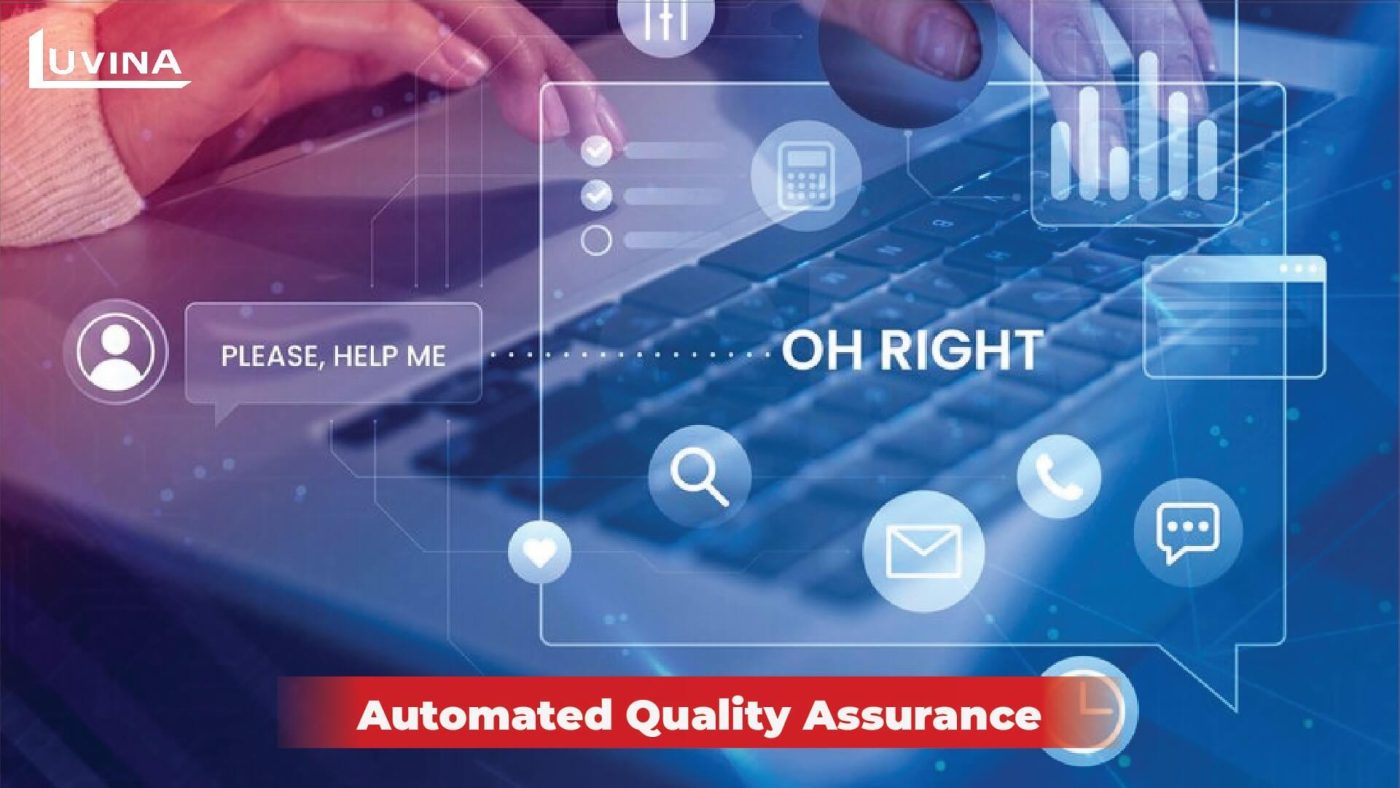DevOps testing is the linchpin of modern software development, ensuring each code iteration meets high-quality standards. Integrating testing within DevOps processes reshapes software creation, making quality an inherent part of every stage. This synergy elevates software reliability and stability, empowering businesses to deliver exceptional products.
Understanding DevOps Testing Services: A Pillar of Agile Development
DevOps testing, rooted in agile principles, is a fundamental paradigm shift in software development. It amalgamates testing practices into every phase of the development lifecycle, ensuring a proactive approach to quality assurance.
Core Principles of Testing in DevOps Methodologies
In DevOps development service, testing transcends the traditional boundaries of quality assurance. It’s not just a phase; it’s a culture. The core principles revolve around continuous integration, continuous testing, and continuous delivery. By integrating testing from the initial code writing to final deployment, DevOps establishes a robust feedback loop, enabling faster identification and resolution of issues.
The Role of DevOps Testing in Development Cycles
DevOps testing plays a multifaceted role in the development lifecycle. Beyond ensuring software quality, it acts as a catalyst in accelerating development cycles. Automating repetitive tests and fostering a collaborative testing environment, reduces time-to-market while maintaining quality benchmarks. This simultaneous focus on speed and quality is the cornerstone of DevOps testing strategies.

DevOps environments thrive on a spectrum of testing strategies designed to embed quality into every aspect of the development process.
From unit tests to integration and acceptance tests, DevOps encompasses a myriad of strategies—these range from employing automated testing frameworks to leveraging containerization for consistent testing environments. The emphasis is on creating a robust, automated testing pipeline that seamlessly integrates into the development workflow.
Continuous Testing Methodologies
Continuous testing stands tall as a transformative practice within DevOps. This methodology ensures that testing isn’t a bottleneck but a continuous process running parallel to development. Automated test suites run alongside every code change, enabling rapid feedback and early bug detection. This fosters an environment where quality isn’t a phase but an ongoing commitment.
The fusion of these testing strategies and continuous testing methodologies within DevOps environments accelerates development cycles, enhances software quality, and fosters a culture of collaboration and innovation at every stage of the software delivery pipeline
Embracing Automation in DevOps Testing Service: Accelerating Efficiency and Precision
Automation stands as the backbone of DevOps testing, revolutionizing how quality assurance is executed throughout the software development lifecycle.
DevOps testing relies extensively on a myriad of automation tools and frameworks tailored to streamline testing processes. From industry-standard tools like Selenium and JUnit to more specialized frameworks such as Cypress or Robot Framework, these automation tools facilitate the creation and execution of test cases with precision and efficiency.
Benefits of Automated Testing in DevOps

Automated testing within DevOps isn’t merely a convenience; it’s a strategic imperative. By automating repetitive and time-consuming test suites, teams can expedite the testing phase without compromising accuracy. This accelerated pace enables rapid identification of issues, reducing manual intervention, and enhancing the overall efficiency of the testing process.
Role in Ensuring Rapid, Error-Free Deployments
In the dynamic landscape of software deployment, speed and accuracy are paramount. Automated testing in DevOps ensures that every code iteration undergoes a rigorous testing cycle, enabling developers to identify bugs and discrepancies swiftly. This meticulous approach reduces the risk of deploying faulty code, fostering rapid, error-free deployments that enhance customer satisfaction and trust in the product.
The integration of automation tools and frameworks within DevOps testing practices fortifies the development pipeline. It allows for faster, more accurate testing, enabling teams to meet stringent deadlines while maintaining software quality. This strategic use of automation accelerates the delivery of reliable software, a hallmark of successful DevOps testing strategies.
DevOps Testing Best Practices: Nurturing a Culture of Quality and Collaboration
DevOps testing thrives on a set of best practices that transcend traditional testing methodologies, emphasizing collaboration, efficiency, and quality.
Effective Testing in a DevOps Culture

1. Shift-Left Testing Approach: Introduce testing early in the development cycle. This proactive approach enables the identification of issues at the nascent stage, reducing the cost and effort of rectifying them later.
2. Comprehensive Test Automation: Embrace comprehensive test automation to cover critical test scenarios. Automating repetitive tests ensures quicker feedback and enhances overall test coverage.
3. Continuous Feedback Loops: Foster an environment where continuous feedback is encouraged among teams. Rapid feedback mechanisms facilitate quick identification and resolution of issues, ensuring software quality.
Collaboration Among Development, Operations, and Testing Teams
1. Cross-Functional Teams: Encourage collaboration between development, operations, and testing teams. Cross-functional teams ensure shared ownership and responsibility, minimizing silos and fostering a culture of collective accountability.
2. Tools Integration: Integrate testing tools into the development and deployment pipelines. This integration facilitates seamless communication and transparency among teams, streamlining the flow of information and reducing friction points.
3. Knowledge Sharing and Training: Invest in continuous knowledge-sharing sessions and training programs. Ensuring that teams are well-versed with the latest tools and methodologies fosters a culture of innovation and adaptability.
By embracing these best practices, organizations instill a culture where testing isn’t just a phase but an integral part of the software development lifecycle. This collaborative and quality-centric approach paves the way for more robust, efficient, and reliable software delivery within a DevOps environment.
Future Trends and Innovations in DevOps Testing: Paving the Path for Enhanced Quality Assurance
DevOps testing, a constantly evolving domain, continues to witness transformative advancements that promise to redefine how software quality is assured within the development pipeline.

Emerging Trends Shaping the Future
1. AI and Machine Learning in Testing: Anticipate increased utilization of AI and machine learning algorithms in testing frameworks. These technologies are poised to enhance test automation, predictive analytics for defect identification, and intelligent test case generation.
2. Shift-Right Testing: Expect a surge in shift-right testing practices, focusing on monitoring and user-centric testing post-deployment. This approach aims to gather real-time feedback from production environments to refine software quality.
3. Chaos Engineering and Resilience Testing: Embrace chaos engineering methodologies to proactively induce failures and assess system resilience. This trend emphasizes the importance of creating more robust, resilient systems through deliberate fault injection.
Predictions for Streamlining Software Quality Assurance
1. Further Integration of DevSecOps: Foresee deeper integration of security within the DevOps testing cycle. Security testing will become more intertwined with development and testing practices, ensuring a more secure software landscape.
2. Enhanced Test Environment Orchestration: Witness advancements in test environment orchestration. Automation and orchestration tools will evolve to provide more dynamic, on-demand, and scalable testing environments.
3. Shift Toward Low-Code/No-Code Testing: Anticipate a shift toward low-code/no-code testing solutions. These platforms empower non-technical stakeholders to participate in testing activities, fostering better collaboration and efficiency.
These emerging trends and predictions indicate an exciting trajectory for DevOps testing. By embracing these innovations, organizations can anticipate more robust, efficient, and adaptive testing practices, ensuring higher software quality and customer satisfaction in the ever-evolving landscape of software development.
>> See more: Mastering DevOps Development Services for Business Agility
Conclusion
DevOps testing stands as the bedrock of software quality assurance, ensuring that each software iteration meets stringent quality benchmarks. Its significance in the software development lifecycle cannot be overstated.
In conclusion, the adoption of DevOps testing isn’t just about embracing a methodology; it’s about embracing a commitment to quality, innovation, and customer satisfaction. Embrace DevOps-driven testing strategies to not just meet but exceed software quality benchmarks, ensuring sustained success in today’s dynamic software development sphere.
Contact Luvina today to explore how our expertise in DevOps outsourcing service can elevate your software quality assurance endeavors.









Read More From Us?
Sign up for our newsletter
Read More From Us?
Sign up for our newsletter